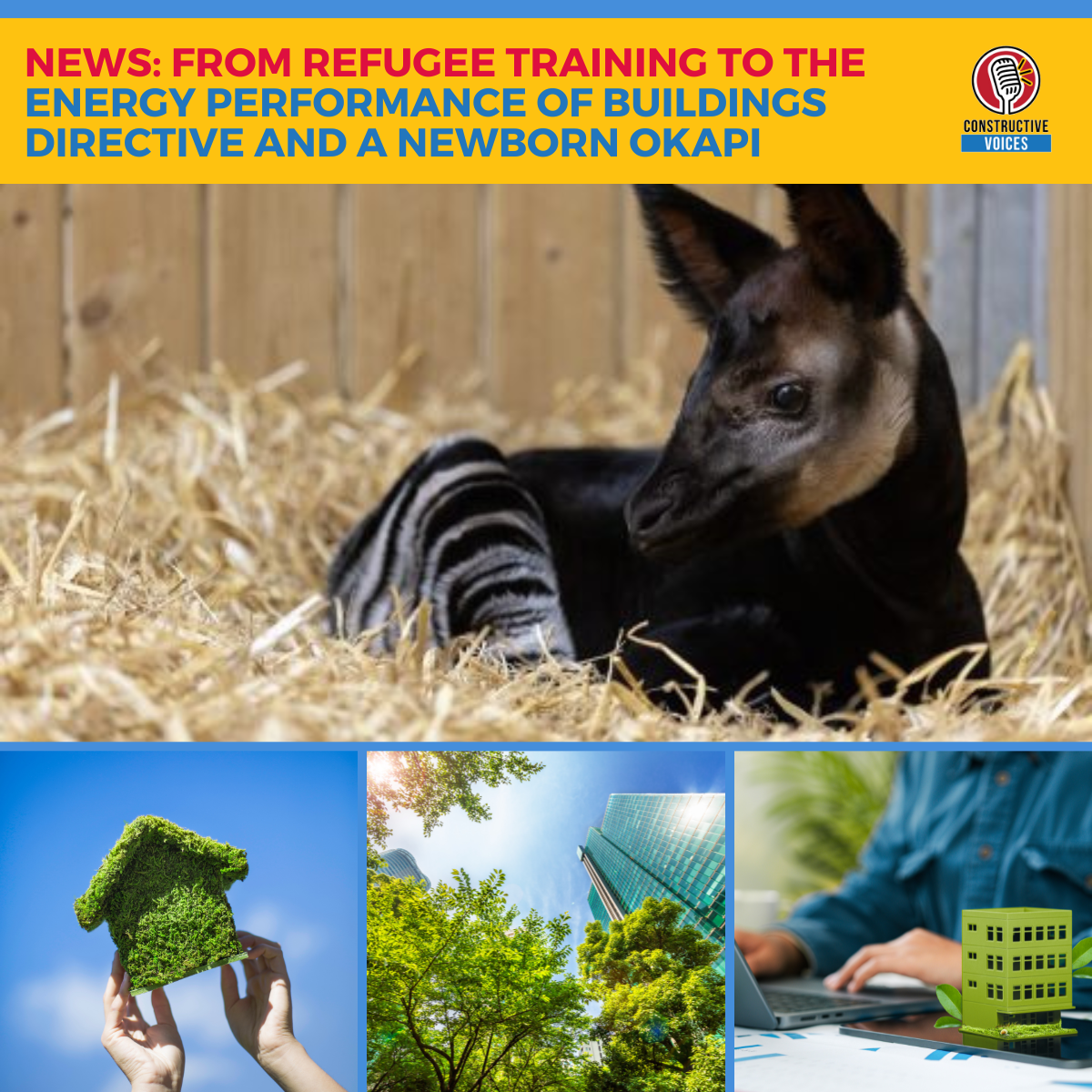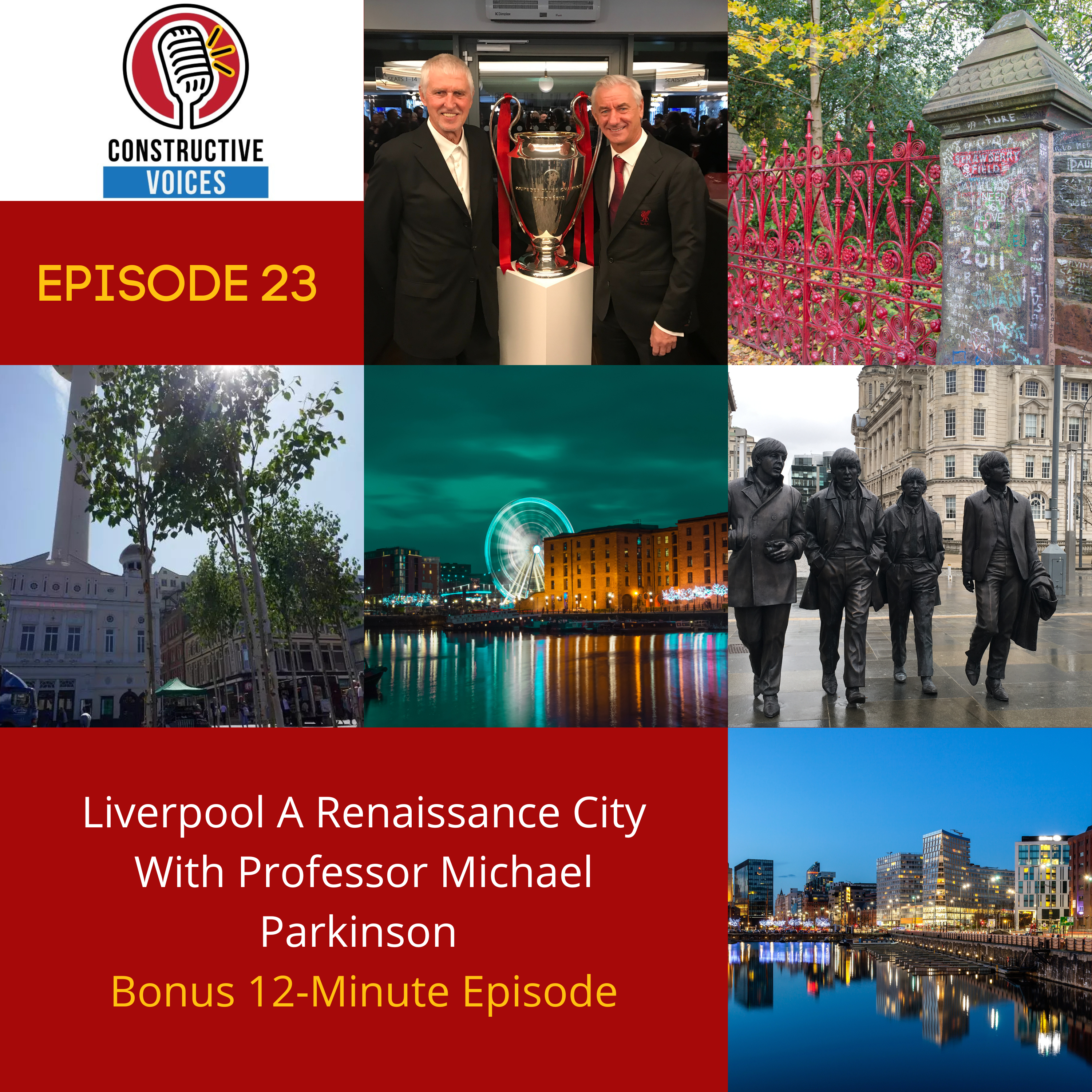Episode Transcript
[00:00:00] Speaker A: Constructive voices, the podcast for the construction people with news, views and expert interviews.
[00:00:06] Speaker B: I'm Jackie Dubrucka, bringing you the first ever edition of the Constructive Voices news. On Tuesday the 13 August we are absolutely delighted to announce that one of our long term collaborators, Claire Wansbury, is one of three Atkins realis ecologists named in the inaugural environmental 100 list. Alongside her colleagues Luke Gorman and Liz Spedding. The 2024 Environment 100 is a prestigious recognition of the trailblazers, innovators, and visionaries who are driving forward environmental sustainability in the UK.
This list celebrates the outstanding contributions of remarkable leaders dedicated to creating a greener and more sustainable future whose efforts are making a significant impact in the environmental sector. With constructive voices, Clare has led an excellent, accessible online biodiversity net gain training course. You can click on the link here to learn more about the list, Clare and the BNG course course in not.
[00:01:19] Speaker C: Such great news, the Guardian featured an article on Monday the 12 August entitled Losing Noahs Ark. Brazils plan to turn the Pantanal into waterway threatens worlds biggest wetland scientists warn that the pantanal, often described as a paradise on earth, could be irreversibly damaged by the Hadrovia project. The delicate balance that sustains this unique ecosystem is already under pressure from climate change, deforestation, and other human activities. The introduction of large scale infrastructure projects like the hydrovia could tip the scales, leading to the collapse of ecosystems and the extinction of species that have existed for millennia. Conservationists are calling for re evaluation of the project, urging stakeholders to consider the long term environmental and social costs that could far outweigh the economic benefits. The future of the pantanal, its wildlife and its people hang in the balance. The Hydravio project, which aims to dredge.
[00:02:28] Speaker B: The Paraguay river and build ports, is.
[00:02:32] Speaker C: A controversial initiative that has sparked significant concern among scientists, conservationists, and local communities. This ambitious infrastructure project, primarily designed to facilitate the transportation of goods and boost economic activity in the region, threatens to irrevocably alter one of the most biodiverse ecosystems on the planet.
Known as the world's largest tropical wetland, the Pantanal is home to a stunning array of wildlife, including jaguars, giant otters, armadillos, and countless other species.
These animals rely on the intricate balance of the pantanal's water systems, which the hydravia project could severely disrupt. The environmental impact of dredging the river is expected to be profound. The river is the lifeblood of the pantanal, regulating its seasonal floods and nurturing the wetlands that sustain its rich biodiversity. By altering the rivers flow, the project could lead to reduced water levels, disrupting the natural flood cycles that are essential for the survival of many species. Jaguars, which are apex predators in this ecosystem, could see their habitats shrink, forcing them into smaller areas and increasing human wildlife conflicts. Giant otters and armadillos, both of which are already facing threats from habitat loss, could see their populations decline further as their environments become less hospitable. Beyond these ecological consequences, the hydravia project threatens to upend the traditional riverine way of life that has existed in the pantanal for centuries. Indigenous and local communities have long depended on the natural rhythms of the river for fishing, agriculture, and transportation. The proposed changes to the river could disrupt these practices, leading to a loss of cultural heritage and livelihoods.
Because the pantanal is not just a haven for wildlife, it is also a vital part of the identity and survival of the people who live there.
[00:04:55] Speaker A: This is constructive voices.


